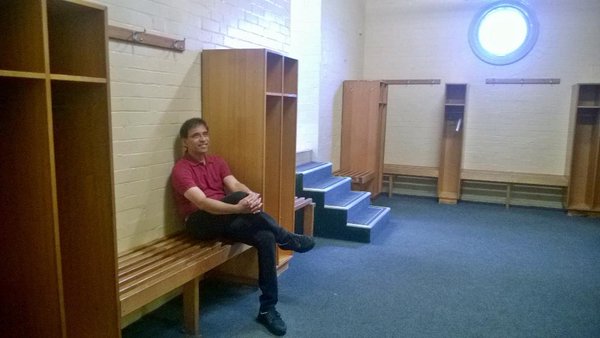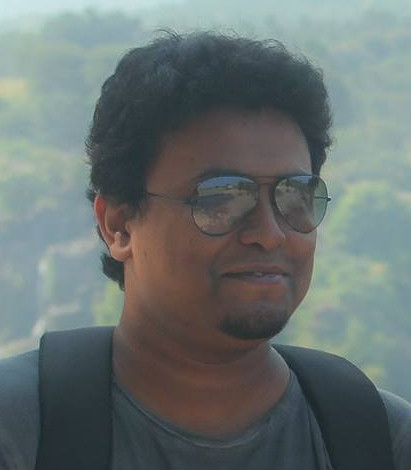The sin of being Harsha Bhogle
For someone who had fled from the clutches of his engineering degree, Harsha Bhogle has been an icon for me. Somewhere in his house lie dust-smitten certificates of his chemical engineering degree from the Osmania University and his MBA degree from IIM Ahmedabad.

Somewhere down the line, those had turned into a mere reminder of how versatile the human mind can be and how insignificant academic accolades can be.
In a field dominated by former cricketers, Harsha Bhogle carved out space for himself, much like the great Tony Cozier had done in the West Indies. Tony, though, had a lead to follow. His father, Jimmy Cozier, was a distinguished journalist in his own right. Harsha, on the other hand, came from a family of academicians, and he ventured into a world filled with superstars of the various cricketing generations.
With a receding hairline, out of fashion spectacles, a child-like enthusiasm, and an innate mastery over words, Harsha Bhogle became the poster-boy of commentary in India.
In a way, it was his boy-next-door image, which had earned him his followers. He did not possess the glamour which is usually seen as a significant facet of being a television presenter. With a receding hairline, out of fashion spectacles, a child-like enthusiasm, and an innate mastery over words, Harsha Bhogle became the poster-boy of commentary in India. As Aayush Puthran wrote for Cricbuzz, “For many in India, when the dream of becoming a Sachin Tendulkar fades away, the aspiration to become a Harsha Bhogle rises.”
Unlike his co-commentators, Bhogle did not have international runs or wickets to fall back on when he made a mistake. His reputation was not built on his career as a cricketer but as an orator. This pushed him towards perfection. Moreover, he never attempted to be an expert. Instead, he was just the facilitator, or the non-striker, as he likes to call it.
He knew what the viewers wanted to hear from the Tony Greigs and Geoffrey Boycotts, and he made sure that his questions led to those answers.
In this age, when the standard of journalism is under constant scrutiny, when the moral values of a profession, which was once considered to be one of the pillars of a successful democracy, has been tainted with political or corporate agendas, the Harsha Bhogles of this world are becoming increasingly irrelevant.
‘Neutral’ is no more. You are either right or left. You are either ‘with us’ or ‘against us’. There used to be a thick line between ‘reporting’ and ‘opinion’, and that line is disappearing a bit with every passing day. Harsha Bhogle belonged to a generation where that line still existed. He also belonged to a generation where cricketers would not be bothered by what is being said in the commentary box about them. There was a mutual respect between those who did and those who described those deeds.

 © Getty Images
© Getty ImagesIt was Harsha Bhogle’s stance to remain unbiased in the commentary box which had endeared him to the cricket fans, but it was that same unbiased stance which eventually led to his expulsion, or at least was one of the reasons.
Just hours before he was about to board a flight to join the rest of the broadcasting crew for the 2016 IPL, Bhogle was informed by the BCCI that his services were no longer required. An unceremonious ending to a path-breaking career, at least for now. The 55-year-old is yet to know the reason behind that decision. “Nobody could look me in the face and tell me, `This is the reason',” Harsha later said in an interview with the Economics Times.
A lot of possible reasons have been speculated – from heated arguments with the officials at Nagpur regarding a closed VIP box during the opening game of the World T20 to a bunch of senior Indian cricketers not liking what he had said about them on air, to a tweet from Amitabh Bachchan. While the first reason seems plausible as the Vidarbha Cricket Association is a powerful unit of the BCCI, it is the last two reasons which we really need to worry about.
Mr. Bachchan had felt that the ‘Indian’ commentators were speaking a bit too much about the Bangladeshi cricketers after their narrow loss against India in the World T20, and he tweeted his views. To add fuel to the fire, MS Dhoni retweeted Amitabh Bachchan’s post with the words, “Nothing to add”. It was later reported that a few of the senior players in the Indian team were not pleased with what was being said about them, and had also confronted an ‘unnamed’ commentator on a flight before his other teammates intervened.
Harsha Bhogle, of course, went on to explain that it was the world feed, which reaches a lot of nations other than India, and he needed to be unbiased.
However, Harsha made the mistake of choosing facts, like he had done for the most of his career, to reply to jingoism. That was not the saddest part of this whole incident, though. A veteran in the media and entertainment industry expecting a cricket commentator to follow the newly found script of patriotism live on air on a feed which is broadcast across the world is shameful. A bunch of senior cricketers, which of course included MS Dhoni, who are unable to handle criticism when they perform poorly, deciding to bully a commentator off his job is disgraceful.
Harsha once wrote, “Entertainment is an escape from reality, sports is an escape into reality” - It is just that the reality has changed a lot since he stepped into this profession, starry-eyed, almost 36 years ago.
"But I do miss the generation that's gone. Sachin , Rahul , Anil , Sourav , Srinath, Laxman... It was a beautiful generation, where I never had to worry about what I'm saying. When Sachin was struggling, I once said, `Here's an emperor walking the streets like a common man'. I did not hear back from anyone that, `Sachin did not like that',” Harsha Bhogle told ET.
All this to a commentator who has often received criticism for not having an opinion of his own is hilarious, though. Harsha Bhogle has his opinions, and in fact, most of his illustrious co-workers have attested to the fact that his cricketing knowledge is second to none, but he avoids putting them out on televisions. He is a storyteller, and yet he remains unbiased towards all the characters in the story. His opinions are reserved for the articles and columns he writes for numerous publications. Sadly, most do not have the know-how to appreciate such clarity in thoughts or such old-school journalism.
Geoffrey Boycott once said Sachin may be a great batsman but he never got his name on the Lord's honours boards. To which Harsha Bhogle had replied, “So whose loss is it, Sachin’s or the honour boards?”
And now we have to ask, whose loss is this, Harsha Bhogle’s or the cricketing world’s?
In the long run, it is the loss of those thousands of aspiring Harsha Bhogles, who were encouraged by his success. Renowned journalist Anand Vasu had once compared Bhogle to Shane Warne, and he wrote, “They made a complicated and tricky art appear easy, prompting many imitations, but no true successors.”
We are unlikely to see another Harsha Bhogle anytime soon. We are unlikely to witness someone who is not a former international cricketer garner so much love and adoration in the commentary box. It is also a blow for journalists who still aspire to be unbiased - ‘neutral’ is so 90s.
Harsha once wrote, “Entertainment is an escape from reality, sports is an escape into reality” - It is just that the reality has changed a lot since he stepped into this profession, starry-eyed, almost 36 years ago.

Comments
Sign up or log in to your account to leave comments and reactions
0 Comments